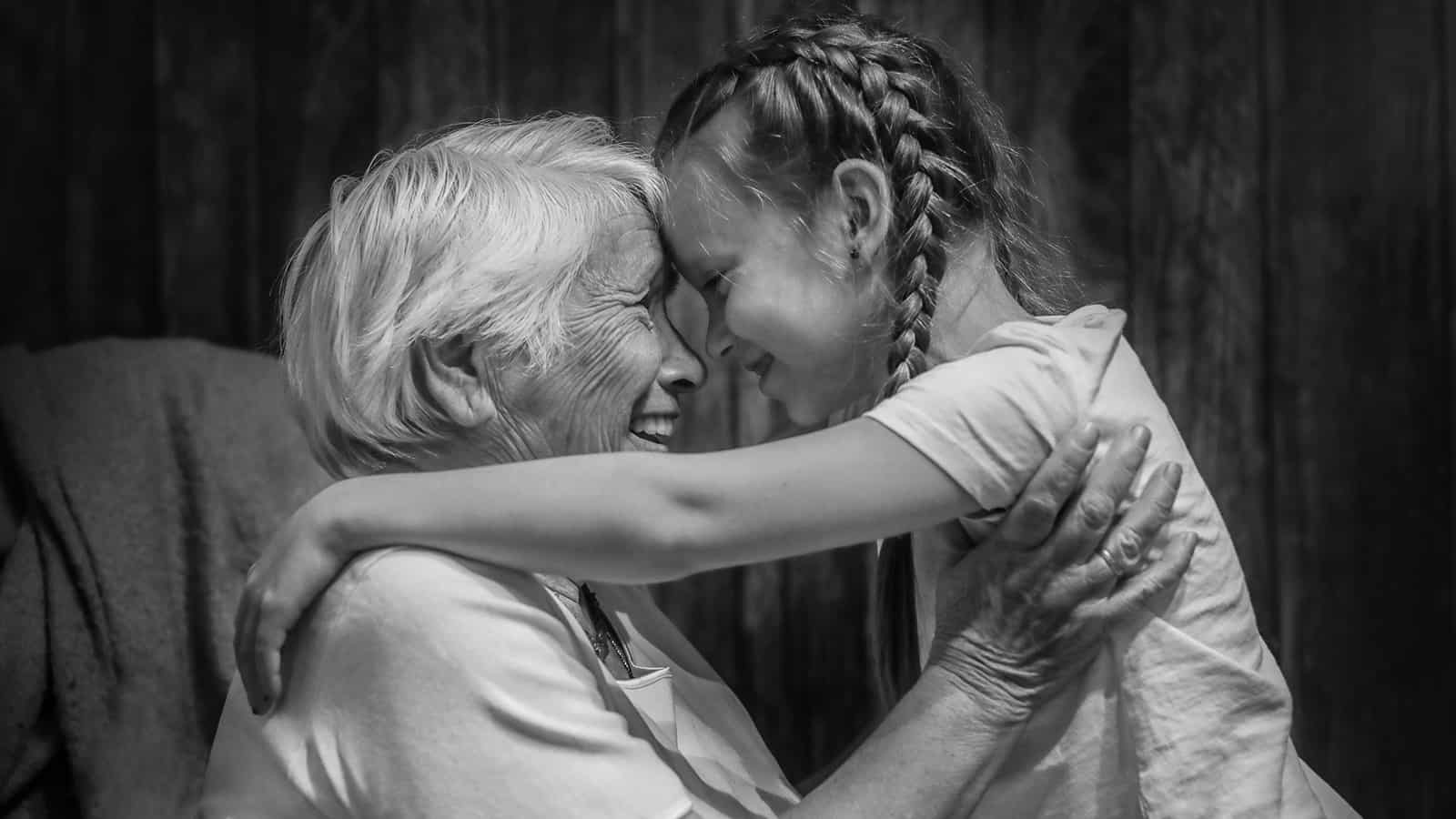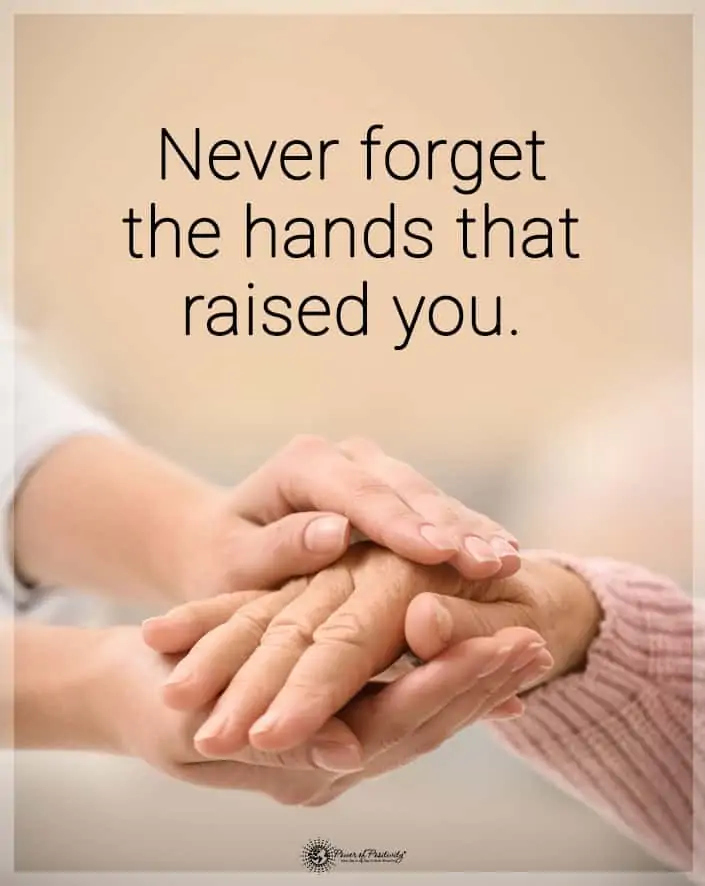Science finally reveals why a grandmother beams with joy upon seeing her grandchildren. Grandmas have so much kindness and love to offer and often show it by baking cookies, buying gifts, or simply showering their grandkids affectionately. They also encourage a child’s development and brain health in significant ways.
For the first time, scientists have scanned grandmothers’ brains while looking at photos of their grandchildren. This activity helped them better understand their bond and how grandmas influence their grandkids.
The findings by Emory University researchers published the results in the journal Proceedings of the Royal Society B. It marks the first to investigate grandmaternal brain function.
“What jumps out in the data is the activation in areas of the brain associated with emotional empathy,” says James Rilling, Emory professor of anthropology and lead author of the study. “That really suggests that grandmothers are geared toward feeling what their grandchildren are feeling when they interact with them. If their grandchild is smiling, they’re feeling the child’s joy. And if their grandchild is crying, they’re feeling the child’s pain and distress.”
They also analyzed the brains of grandmothers while viewing pictures of their grown children. Researchers found that brain areas linked to cognitive empathy lit up rather than emotional empathy. This data suggests the grandmother may be trying to understand their child’s thoughts or feelings, but not in a moving way. Age probably plays the most significant factor in these reactions.
“Young children have likely evolved traits to be able to manipulate not just the maternal brain, but the grand maternal brain,” Rilling says. “An adult child doesn’t have the same cute ‘factor,’ so they may not elicit the same emotional response.”
The Grandmother is a Crucial Part of the Family
Minwoo Lee, a Ph.D. candidate in Emory’s Department of Anthropology, and Amber Gonzalez, a former Emory research specialist, co-authored the study.
Lee added she relates to the study since she spent much time around her grandmothers. She has fond memories of them and recalls that they always seemed happy to see her. As an adult, she finally understands their warm, welcoming attitude toward her.
She added that it’s rare to study the older human brain besides dementia or age-related disorders in the scientific world. This makes the research even more special.
“Here, we’re highlighting the brain functions of grandmothers that may play an important role in our social lives and development,” Lee says. “It’s an important aspect of the human experience that has been largely left out of the field of neuroscience.”
Rilling’s research centers around the neural basis of human behavior and social cognition. While neuroscientists have focused chiefly on motherhood, he leads the way in the lesser-known neuroscience of fatherhood.
However, for this study, he wanted to examine the brain response of grandmothers during interactions with their grandchildren. It’s a relatively new topic but has important implications in almost every culture.
“Evidence is emerging in neuroscience for a global, parental caregiving system in the brain,” Rilling says. “We wanted to see how grandmothers might fit into that pattern.”
Traditional Communities Rely on the Grandmother for Survival
In human families, everyone contributes in some way to care for offspring. Of course, mothers are the primary caregivers, but the grandmother also plays a crucial role.
“We often assume that fathers are the most important caregivers next to mothers, but that’s not always true,” Rilling says. “In some cases, grandmothers are the primary helper.”
The “grandmother hypothesis” suggests that human females live well past their reproductive years to support their children and grandchildren. A study of the traditional Hadza people of Tanzania confirms this hypothesis. In their society, grandmothers help forage for food, which offers nutritional benefits to their grandkids.
The authors cite a separate study of traditional communities as well. In this study, having the grandmother around led to more grandchildren being born in a shorter timeframe. So, it seems that the grandmother is the glue holding families together, in a way. Her support ensures a strong, healthy family that works together to survive and thrive in various communities.
In modern societies, evidence shows that children have better academic, physical, social, and behavioral health when their grandmother is actively involved.
Emory University Reveals How Grandmothers’ Brains React to Seeing Grandchildren
For this study, the researchers aimed to understand how engaged grandmothers benefit their families. The team gathered 50 participants for the study and asked them to fill out questionnaires about their experiences as grandmothers. They answered questions about how much time they spent with their grandkids, what activities they did together, and how much love they felt for them.
Researchers also scanned their brains using functional magnetic resonance imaging (fMRI) while viewing their grandchild’s images. They repeated the scans while the grandmother looked at pictures of an unknown child, the same-sex parent of the grandchild, and an adult stranger.
Results indicated that the grandmother viewing pictures of her grandkid had more brain regions associated with emotional empathy and movement. Researchers didn’t note this when they viewed the other images.
However, grandmothers whose brain scans showed more cognitive empathy reported wanting to be more involved with caring for their grandchildren.
“Our results add to the evidence that there does seem to be a global parenting caregiving system in the brain and that grandmothers’ responses to their grandchildren maps onto it,” Rilling says.
Rilling added that interviewing the grandmothers personally was the highlight of the study. “It was fun,” he says. “I wanted to get a sense of the rewards and challenges of being a grandmother.”
“Many of them also said how nice it is to not be under as much time and financial pressure as they were when raising their children,” Rilling says. “They get to enjoy the experience of being a grandmother much more than they did being parents.”
Final Thoughts on a Study Showing How a Grandmother Reacts to Seeing a Grandchild
You probably don’t need a study to prove how much your grandmother loves you. However, it’s interesting to see how the brains of grandmothers light up when they see a picture of their grandchild. So, when you visit your grandmother, give her the biggest hug and tell her how much you appreciate her.
















 Community
Community

